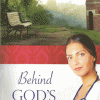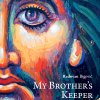Deaths and births, careers and relationships cement and sometimes rip apart the relationship. Overall, however, the period of calm in Europe between the wars is generally favorable for the young couple. Everything deteriorates when Hitler's armies goose-step across Europe. The initial bombing of Belgrade in April, l941 claims 20,000 victims and it's a downhill slide from there. Amid the bombing, shelling and rigid Nazi occupation of Belgrade and its environs, Desa tries with all means available to her to save her patients and her family. Danilo joins the resistance and is imprisoned. When the occupation of Serbia finally ends with the entry of Soviet troops routing out the Germans, citizens rejoice. The Russians lead the way for Tito's Partisans to now occupy Yugoslavia. Soon the Yugoslavs learn that the communist rule will be just as cruel as the former Nazi occupation. How Desa and Danilo, their family and friends survive, or don't, the major events of the early 20th century rips across the pages of Behind God's Back. Also, Desa's medical journey explores the difficulties and progress of medicine in the 20th century. Behind God's Back can perhaps be put in a similar category with Cutting for Stone, Abraham Verghese; Corelli's Mandolin and Birds Without Wings, Louis de Bernieres; and Shaghai Girls, Lisa See.
Sidebar
Site Map
A great man is one who collects knowledge the way a bee collects honey and uses it to help people overcome the difficulties they endure - hunger, ignorance and disease!
- Nikola Tesla
Remember, remember always, that all of us, and you and I especially, are descended from immigrants and revolutionists.
- Franklin Roosevelt
While their territory has been devastated and their homes despoiled, the spirit of the Serbian people has not been broken.
- Woodrow Wilson





